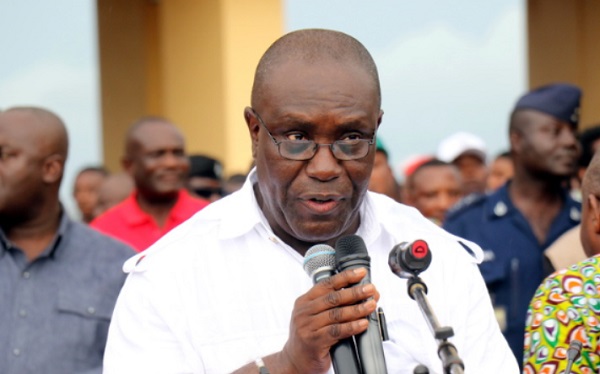
'We cannot pay VAT on electricity; we will no't pay it today; we will not pay it tomorrow' - Organised Labour
Organised Labour has given the government a one-week ultimatum to withdraw the value added tax (VAT) on electricity for residential customers.
The labour unions have said the implementation of the VAT on residential customers would worsen the plight of already burdened power consumers since the cost of electricity would go up by 15 per cent.
At a press conference in Accra Tuesday morning [Jan 23, 2024], the Secretary General of the Trades Union Congress (TUC) Dr Yaw Baah, stressed that the government must withdraw the implementation of the VAT or be prepared to face the wrath of workers.
"Our message to government is very simple - we cannot pay VAT on electricity; we will not pay it today; we will not pay it tomorrow," he stressed.
Giving context to their demand, Dr Baah explained that the TUC had sighted a letter from the Ministry of Finance, signed by the sector minister, Ken Ofori-Atta, and dated December 12, 2023, directing the Electricity Company of Ghana (ECG) and the Northern Electricity Distribution Company (NEDCo) to implement the VAT on electricity for residential customers.
Portions of the letter asked the two power distributors to start "implementation of VAT for residential customers of electricity above the maximum consumption of level specified for block charges for lifeline units in line with section 35 and 37 and first schedule of VAT Act, 2013 (Act 870) effective 1st January, 2024."
The minister had explained in the letter that the measure was part of the government's medium-term revenue strategy and the International Monetary Fund (IMF) supported post COVID-19 programme for economic growth.
Implications
However, Dr Baah said the implementation of the directive had dire implications because it would increase electricity bill for residential customers by at least 15 per cent.
The labour economist added that residential customers who consumed above the lifeline of 30 kilowatts an hour would also pay the 15 per cent VAT.
The TUC Secretary-General also said it was worrying that after electricity tariffs were increased by 73 per cent in 2022, VAT was being added to worsen the plight of Ghanaians.
Dr Baah said organised labour was prepared to go all out to ensure that the VAT on electricity for residential customers was withdrawn.
"We are giving the government up to 31st January, 2024 to withdraw the letter from the Finance Minister. If by that time the minister has not given the directive to ECG and NEDCo to stop the implementation of the VAT on residential customers, we will advise ourselves," he said.
Dr Baah said it was unacceptable that while the government was imposing VAT on residential consumers of electricity, plans were advanced to remove VAT on mineral exploration in the country for wealthy multinational mining companies.
"In situations like what Ghana is going through, our mineral resources are expected to provide a buffer to cushion the economy from external and internal shocks; but in Ghana, that is not the case," the labour economist further stated.
